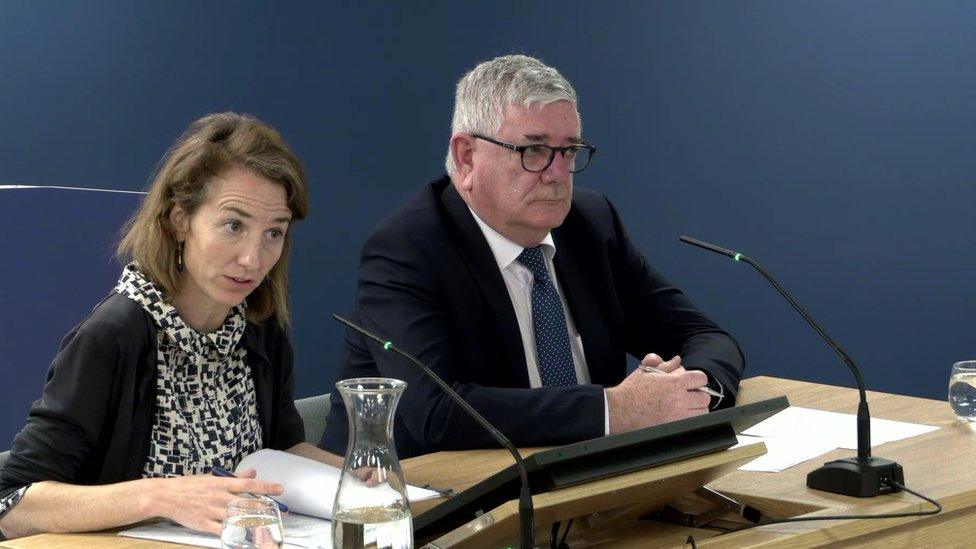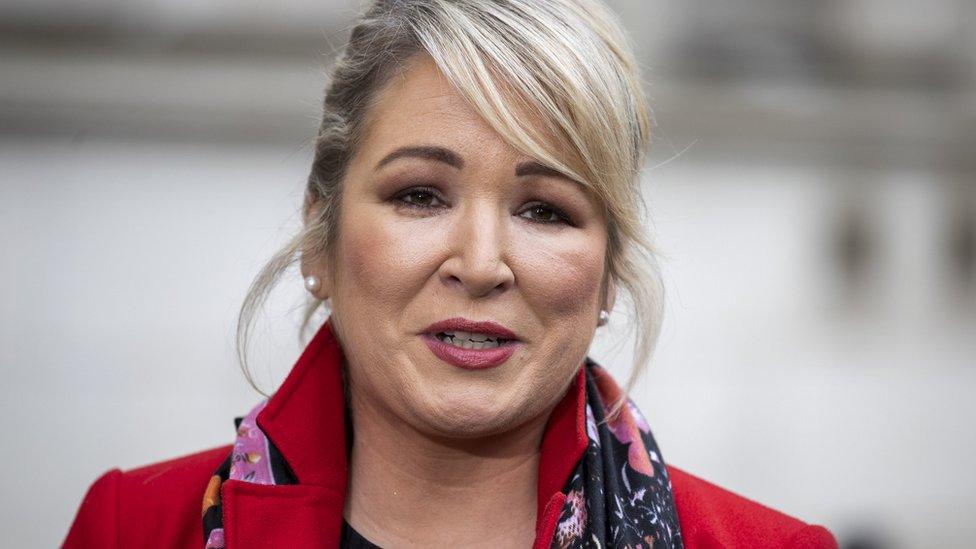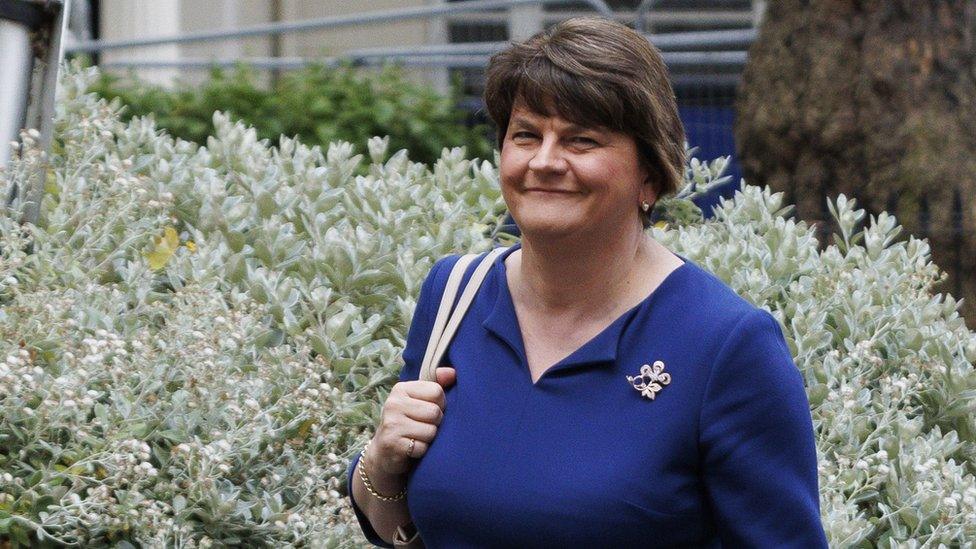Covid-19 inquiry hears poorest were worst hit during pandemic
- Published

Kate Bell and Gerry Murphy from the Irish Congress of Trade Unions gave evidence to the inquiry on Monday
The Covid-19 inquiry in London has heard that people from less well-off backgrounds were more likely to be hospitalised during the pandemic.
This is according to the Irish Congress of Trade Unions assistant general secretary, Gerry Murphy.
He said that also manifested in more "premature deaths, suicide rates and generally all negative indicators".
This module of the inquiry examines how resilient and prepared each of the UK nations were as the pandemic emerged.
The hearing heard that 10 years of austerity meant there were low margins of extra capacity particularly when an ageing population placed greater pressure on the health system.
When asked if the lack of an Stormont executive and ministerial input between 2017 and 2020 had an adverse impact on the population which had been allowed to "drift", Mr Murphy said he "entirely agreed".
He added that it was "particularly disappointing" that the executive collapsed in 2017 following all the political parties and trade unions signing up to the 2016 Bengoa review which looked at transforming the system.
Providing a national overview, Kate Bell from the Trade Union Congress said they had no evidence to indicate that planning around infection control was taking place across the social care systems.
"It has been heard throughout the inquiry that following exercise Cygnus recommendations around pandemic preparedness within the social care system were not acted on and I think we see this as a sign of the Cinderella status of the social care sector that it had been underfunded and ignored throughout," Ms Bell said.
Mr Murphy added that in Northern Ireland staff and patients were facing the same issues and he said that as the pandemic unfolded it became clear that "there was no planning or provision to inspect care home in the health and social care sector".
Related topics
- Published17 July 2023

- Published12 July 2023

- Published11 July 2023

- Published10 July 2023
